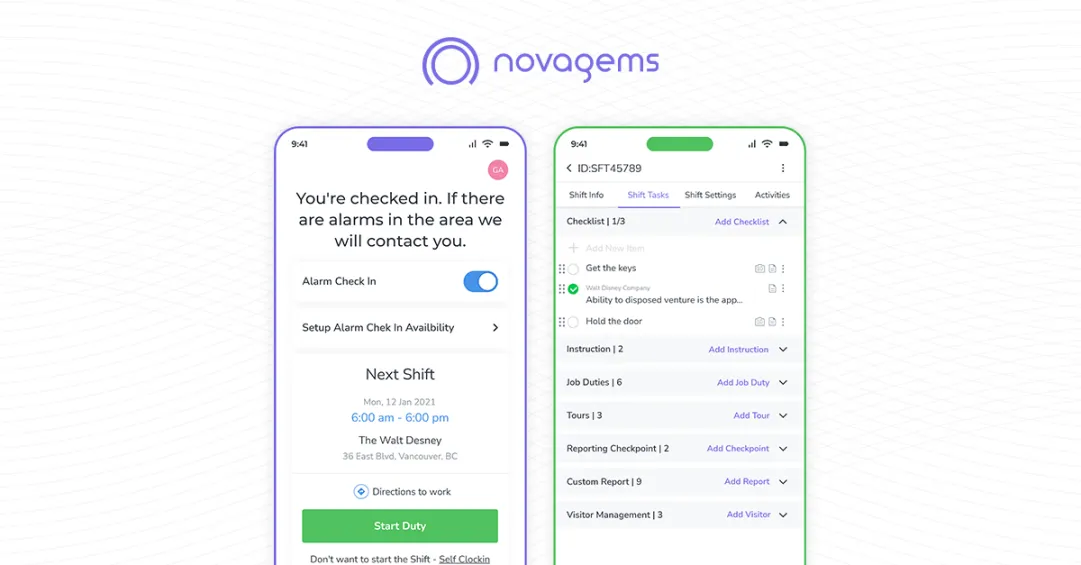Remote Work and Employee Engagement: Best Practices for a Connected Team
Wed, Aug 16, 2023
Read in 5 minutes
Discover effective strategies for remote work and employee engagement in our comprehensive blog. Learn best practices to build a connected team, foster trust, and promote work-life balance. Explore virtual collaboration tools, employee recognition, and professional development opportunities. Overcome challenges like isolation and remote performance management.

In recent years, remote work has become a prominent work arrangement for many organizations worldwide. As more businesses embrace this flexible approach, maintaining a highly engaged and connected team becomes essential for sustained productivity and success. In this blog, we will delve into the best practices that promote employee engagement and foster a strong sense of connection among remote team members. From building a positive work culture to leveraging technology tools, we will explore the key strategies that can help you create a thriving remote workforce.
Employee recognition and professional development will go hand in hand if the businesses want to succeed with a competitive edge.
Tools for Enhancing Remote Employee Engagement
Virtual Collaboration Platforms:
Utilize collaboration tools like Slack, Microsoft Teams, or Zoom to facilitate seamless communication and teamwork. These platforms enable instant messaging, video conferencing, file sharing, and project management, allowing team members to collaborate efficiently, despite being geographically dispersed.
You can only have a connected team and remote work if you have collaboration platforms. Conduct regular meetings and keep everyone on the same page. This will vastly improve the effectiveness of their work. Virtual collaboration tools for remote teams is essential every once in a while.
Employee Feedback And Surveys:
Gather regular feedback from your remote team through surveys or anonymous suggestion boxes. Use this valuable input to improve work processes, identify challenges, and make data-driven decisions to enhance employee engagement. Employee feedback is a great way for remote team building but it should be done in such a way that no hard feelings are conveyed and everything is done professionally.
One of the best practices companies can use to enhance employee engagement in remote work environments is to take surveys and gather the real and genuine reviews of the employees. This helps them get a clear picture of what their employees are facing and going through. By listening to remote employees, organizations can address their needs and make data-driven decisions to improve engagement.
Recognizing And Rewarding Remote Employees:
Recognition plays a significant role in boosting employee morale and fostering a sense of belonging. Acknowledge the efforts and achievements of remote employees publicly, whether through team announcements, virtual awards ceremonies, or personalized appreciation messages. Implementing a reward system, such as gift cards or extra time off, can also motivate employees to excel in their roles.
Recognizing employee contributions is crucial for boosting motivation and engagement. Employee recognition platforms like Trello, Slack, and Hipchat provide channels for peer-to-peer recognition, feedback, and appreciation. These tools empower team members to celebrate each other’s achievements, regardless of geographical distance.
Professional Development And Training Opportunities
Investing in your remote team’s professional development demonstrates a commitment to their growth and career advancement. Offer virtual training sessions, webinars, and online courses to enhance their skills and knowledge. Providing opportunities for personal and career growth will increase job satisfaction and loyalty.
Through Employee recognition the employees will feel motivated and demonstrate their wish to take on more responsibilities that will help them and your company grow mutually. If the employees are feeling motivated enough to work, they will do more than it is required for them. There are many Remote performance management softwares that will track their performance and you can reward the deserving employees.
Training opportunities of the employees can be explored through virtual collaboration tools for remote teams where the whole team can give their inputs and immediate feedback for the betterment of the business.
Overcoming Challenges In Remote Employee Engagement
Remote work offers a number of benefits for both employees and employers, including increased flexibility, improved work-life balance, and reduced costs. However, remote work also presents some challenges, one of which is employee engagement.
Here are some of the challenges of remote employee engagement:
Loneliness: Remote employees can often feel isolated and alone. This can lead to decreased motivation, productivity, and job satisfaction. Try to have good communication with your employee to Overcome isolation in remote work to foster employee engagement.
Communication: It can be difficult to communicate effectively with remote employees. This can lead to misunderstandings, missed deadlines, and poor decision-making.
Collaboration: It can also be difficult to collaborate with remote employees. This can lead to delays in projects and a lack of innovation.
Technology: Technical problems can also be a challenge for remote employees. This can lead to frustration and decreased productivity
Here are some tips through which you can overcome challenges in remote work environments.
1. Communication and Collaboration:
- Encourage regular communication through virtual team meetings, one-on-one check-ins, and team chat platforms.
- Utilize video conferencing to foster face-to-face interactions and build a sense of connection among team members.
- Implement collaboration tools to facilitate seamless file sharing, project updates, and real-time collaboration.
2. Building Trust and Connection:
- Foster a culture of trust by encouraging open and transparent communication.
- Organize virtual team-building activities and social events to build personal connections and strengthen team bonds.
- Recognize and celebrate team members’ achievements publicly to show appreciation and build camaraderie.
3. Work-Life Balance:
- Encourage remote employees to set clear boundaries between work and personal life.
- Promote flexible work hours to accommodate individual preferences and responsibilities.
- Provide resources and tips for maintaining work-life balance in a remote setting.
- Implementing work-life balance for remote team productivity can also be achieved with proper resource planning.
4. Isolation and Loneliness:
- Offer opportunities for virtual social interactions, such as virtual coffee breaks or online team lunches.
- Set up virtual buddy systems to pair new employees with experienced team members for mentorship and support.
- Implement an employee assistance program to offer resources for mental health and well-being.
5. Managing Remote Team Performance:
- Set clear performance expectations and goals for remote employees.
- Implement regular check-ins and performance reviews to provide feedback and support.
- Use performance management tools to track progress and ensure accountability.
Wrapping Up
Embracing remote work is an opportunity to build a more inclusive and flexible work environment. By focusing on employee engagement, organizations can create a connected team that thrives in a virtual setting. Employing these best practices - fostering trust, leveraging technology, providing recognition, and prioritizing professional development - will pave the way for a successful and engaged remote workforce. Empower your team to excel, regardless of their location, and unlock the full potential of remote work.
Get a Free Trial
Sign up For Newsletter
Latest Blog Posts
Get Started
Start being productive & grow your business
with Novagems




